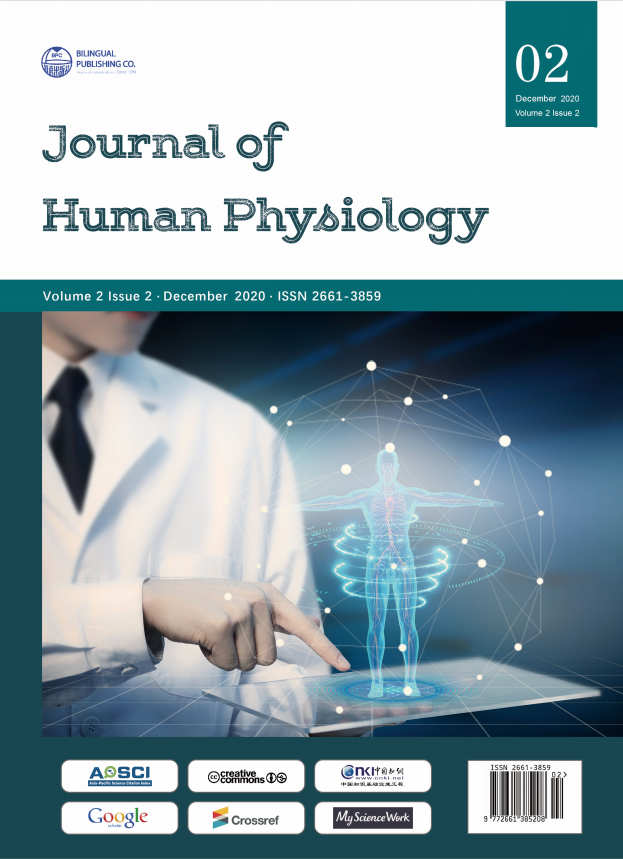Playing Online Game Increase Aggressive Behaviour of High School Students on 4.0 Century in Papua
DOI:
https://doi.org/10.30564/jhp.v2i2.2584Abstract
Introduction: Once the enormity of online games took over the attention of many teens and children so that it brought a big change. Aggressive behavior among adolescents especially high school students from year to year is increasing both in number and forms of aggressive behavior that is raised. Objectives: This study aims to determine the relationship between playing online games and aggressive behavior of high school students in Jayapura. Methods: The research method used was analytical research using cross sectional design. Study the relationship between two variables in a situation or group of objects using a simple linear regression statistical test. Result: The correlation effect of Length Playing Game Online with aggressively behavior of students in High School logistic test results obtained meaningful results where the value of p = 0, 00 <0.05. This means that there is an influence or relationship between the lengths of playing online games with the aggressive behavior of high school students. These results indicate that there is a positive relationship between the lengths of playing online games with the aggressive behavior of adolescents. This means that the old variable playing online games can be used as a trigger to predict the emergence of aggressive teenage behavior. The higher the length of playing online games, the higher the aggressive behavior of teenagers, conversely the lower the longer playing online games, the lower the aggressive behavior of teenagers.Keywords:
Game online; Frequency; Duration; Level of attachment; Aggressive behaviorReferences
[1] Laili, FM. The application of Family Counseling to reduce addiction to online games for eighth grade students of SMP Negeri 21 Surabaya. Journal of BK UNESA, 2015, 5(1).
[2] Lutfiwati, S. Understanding Online Game Addiction Through a Neurobiology Approach. ANFUSINA: Journal of Psychology, 2019, 1(1): 1-16.
[3] Nurazmi, A., et al. The relationship of addiction to play online games on emotional regulations in adolescents. Student Online Journal (JOM) in Nursing, 2018, 5(2): 555-562.
[4] Susanti, MM, et al. The relationship of addiction to play online games on smartphone (mobile online games) with children dining schools of classes 5 and 6 in sd 4 purwodadi. The shine light world ners, 2018, 3(2).
[5] Ramadhani, A. The relationship between motives for playing online games and the behavior of early adolescent aggressiveness (a case study in the zerowings, candela and mutant warnet in Samarinda). Samarinda: Ilkom University e-journal Mulawarman, 2013.
[6] Wahyuningsih, DL. The Intensity Relationship of Playing Online Games with Aggressive Behavior of Children in Sdit Ibnu Abbas Kebumen, 2018. Retrieved 10 February, 2019, from: http://elib.stikesmuhgombong.ac.id/851/1/DDI%20LUSI%20WAHYUNINGSIH%20%20NIM.%20A21601431.pdf
[7] Jewish & Anderson, in Melani, 2009. https://www.google.com/search?q=Jewish+%26+Anderson%2C+in+Melani+2009&oq=Jewish+%26+Anderson%2C+in+Melani+2009&aqs=-chrome..69i57.1724j0j7&sourceid=chrome&ie=UTF-8.
[8] Ramadani. The relationship between playing online games with social behavior and learning achievement, 2018. Retrieved 5 February 2019, from: http://digilib.unila.ac.id/30458/3/SKRIPSI%20TANPA%20BAB%20PEMBAHASAN.pdf.
[9] Kurniawan, 2017. https://scholar.google.co.id/citations?user=X95qq8oAAAAJ&hl=id
[10] Affandi. http://eprints.umpo.ac.id/3324/7/7.%20DAFTAR%20PUSTAKA.pdf
[11] Fahruli. Research proposal for the influence of online games on children’s growth, 2015. Retrieved 5 February, 2019, from: https://www.scribd.com/doc/294094988/Proposal-Research-Influence-Game-Online-Fronting-Growth-Children
[12] Arisya, A., N. Ramdhani. Relationship between the intensity of the use of dota game on gadgets with teen aggressiveness, Gadjah Mada University, 2016.
[13] Alrasheed, KB, M. Aprianti. Gadget addiction and its relationship with The intelligence of adolescent emotions (a study on middle students in setiabudi district,south jakarta jakarta). Journal of Psychological Sciences, 2018, 7(2): 136-142.
[14] Tiani, A. The Relationship Between Playing Online Games and Aggressive Child Behavior in Surakarta, Muhammadiyah University Surakarta, 2014.
[15] Ulfa, M. The Effect of Online Game Addiction on Youth Behavior at Game Center Headquarters at Jalan Hr. Subrantas, Tampan District, Pekanbaru. Online Journal of Social and Political Sciences Faculty of Riau University Students, 2017, 4(1): 1-13.
[16] Utomo, A. The Relationship Between Intensity Playing Online Games with the theme of Violence and Aggressive Behavior in Youth in Surakarta, Muhammadiyah University, Surakarta, 2014.
[17] Tobing, IDL. The Relationship Between Duration and Frequency of Playing Online Games With Emotional Mental Problems in Adolescents in SMP Negeri 1 Medan 2015/2016, 2015.
Downloads
Issue
Article Type
License
Copyright © 2021 Agussalim A, M. Natsir, Sisilia Teresia Rosmala Dewi, Sukatemin ., Fitria Setiawan, Anna Veronica Pont

This is an open access article under the Creative Commons Attribution-NonCommercial 4.0 International (CC BY-NC 4.0) License.
Copyright and Licensing
The authors shall retain the copyright of their work but allow the Publisher to publish, copy, distribute, and convey the work.
Journal of Human Physiology publishes accepted manuscripts under Creative Commons Attribution-NonCommercial 4.0 International License (CC BY-NC 4.0). Authors who submit their papers for publication by Journal of Human Physiology agree to have the CC BY-NC 4.0 license applied to their work, and that anyone is allowed to reuse the article or part of it free of charge for non-commercial use. As long as you follow the license terms and original source is properly cited, anyone may copy, redistribute the material in any medium or format, remix, transform, and build upon the material.
License Policy for Reuse of Third-Party Materials
If a manuscript submitted to the journal contains the materials which are held in copyright by a third-party, authors are responsible for obtaining permissions from the copyright holder to reuse or republish any previously published figures, illustrations, charts, tables, photographs, and text excerpts, etc. When submitting a manuscript, official written proof of permission must be provided and clearly stated in the cover letter.
The editorial office of the journal has the right to reject/retract articles that reuse third-party materials without permission.
Journal Policies on Data Sharing
We encourage authors to share articles published in our journal to other data platforms, but only if it is noted that it has been published in this journal.




 Agussalim A
Agussalim A

